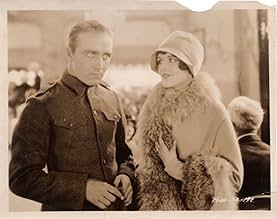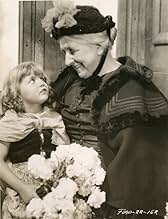अपनी भाषा में प्लॉट जोड़ेंA family saga in which three sons of a Bavarian widow go to war for Germany and the fourth goes to America, Germany's eventual opponent.A family saga in which three sons of a Bavarian widow go to war for Germany and the fourth goes to America, Germany's eventual opponent.A family saga in which three sons of a Bavarian widow go to war for Germany and the fourth goes to America, Germany's eventual opponent.
- पुरस्कार
- कुल 3 जीत
Frank Baker
- Soldier
- (बिना क्रेडिट के)
George Blagoi
- Officer
- (बिना क्रेडिट के)
Stanley Blystone
- Officer
- (बिना क्रेडिट के)
Carl Boheme
- Officer
- (बिना क्रेडिट के)
Constant Franke
- Officer
- (बिना क्रेडिट के)
कहानी
क्या आपको पता है
- ट्रिवियाThe film set a permanent attendance record at New York's Roxy Theater
- गूफ़In the New York City sequences, which take place immediately after World War I (1919-1920), all of the women's fashions are strictly in the style of 1928, and all of the automobiles are of late-1920s design.
- भाव
The Schoolmaster: Books, Herr Postman, are friends that never deceive,
- साउंडट्रैकLittle Mother
(1928) (uncredited)
Music by Erno Rapee
Lyrics by Lew Pollack
Sung by Harold Van Duzee and the Roxy Male Quartette
फीचर्ड रिव्यू
In late 1920s Hollywood there was a brief craze for German cinema, especially at Fox, who had recently appropriated FW Murnau. It was no surprise then that, as well as bringing over the genuine article, the studios would also begin cranking out a few pictures that were Germanic in setting if not in style. Four Sons also takes advantage of the trend for World War pictures after the success The Big Parade.
As well as directing Four Sons, John Ford was also the producer, which is bit of a mixed blessing. With the director allowed greater executive control you get all the best and worst of the free-range Ford. As has often been remarked, Ford had "economy of expression" that is, the ability to convey information and story in as few shots as possible. The flipside of this however is that he did tend to get bogged down with comedy scenes, or in this case restating and reinforcing the sense of rural simplicity and family unity until it becomes more monotonous than moving. The comic moments are particularly weak in this picture just fat men with moustaches and Prussians with monocles being stereotypically Teutonic.
But one great advantage of having Ford as producer is that the picture is relatively free from unnecessary intertitles. All the great silent directors were of course skilled visual storytellers and Ford is no exception, and of course different screenwriters vary in their wordiness, but the frequency and necessity of intertitles would ultimately be down to whoever was in overall charge of the production. Ford has here cut down the title cards to a minimum, and so we get some great little moments such as the postman turning the first letter over in Mother Bernle's hands to let us know that she cannot read, or the villagers approaching the postman to find out if is their family who is to receive the black envelope moments which would have been ruined by a load of intertitles in many other productions of this era.
And the visual style of Ford's pictures was by now more or less fully developed. It's interesting to see here how in Ford's world there is no midpoint between town and country. We don't see, for example, the village framed by surrounding hills or fields, or even against the sky. The village itself is the frame and the background, as if to make it an enclosed and totally civilized space. In contrast, whenever Ford shot a scene out in the wilderness he emphasised its openness although Four Sons never really gets out in the open air so you don't see that here.
While Four Sons may be somewhat awash with sentimentality, Ford's simplistic approach of showing the tenderest moments with delicate shot composition does at least allow the picture some dignity. For example, he uses the overhead light to throw an almost heavenly glow over the family meal scene, then later echoes this with the shot of Mother Bernle grieving in a shaft of daylight. The most effective shot of all though is when Joseph says goodbye to his wife before going off to war. Ford goes against convention by filming the couple from behind in long shot, and the beauty of this moment almost makes me forgive all the other flaws of the picture. It's also a good decision not to show their faces, because James Hall was not a particularly good actor, as we can see in the scene where he returns home again.
In spite these touches of brilliance, the picture as a whole is weakened because it continually bombards us with either sentiment or tragedy. Of course, cinema would be dull indeed without poignancy, but poignancy only works in small doses. Saturate a picture in emotions and the individual tugs lose impact. Four Sons is a good work for Ford the director, but this fact doesn't quite save it from the poor judgment of Ford the producer.
As well as directing Four Sons, John Ford was also the producer, which is bit of a mixed blessing. With the director allowed greater executive control you get all the best and worst of the free-range Ford. As has often been remarked, Ford had "economy of expression" that is, the ability to convey information and story in as few shots as possible. The flipside of this however is that he did tend to get bogged down with comedy scenes, or in this case restating and reinforcing the sense of rural simplicity and family unity until it becomes more monotonous than moving. The comic moments are particularly weak in this picture just fat men with moustaches and Prussians with monocles being stereotypically Teutonic.
But one great advantage of having Ford as producer is that the picture is relatively free from unnecessary intertitles. All the great silent directors were of course skilled visual storytellers and Ford is no exception, and of course different screenwriters vary in their wordiness, but the frequency and necessity of intertitles would ultimately be down to whoever was in overall charge of the production. Ford has here cut down the title cards to a minimum, and so we get some great little moments such as the postman turning the first letter over in Mother Bernle's hands to let us know that she cannot read, or the villagers approaching the postman to find out if is their family who is to receive the black envelope moments which would have been ruined by a load of intertitles in many other productions of this era.
And the visual style of Ford's pictures was by now more or less fully developed. It's interesting to see here how in Ford's world there is no midpoint between town and country. We don't see, for example, the village framed by surrounding hills or fields, or even against the sky. The village itself is the frame and the background, as if to make it an enclosed and totally civilized space. In contrast, whenever Ford shot a scene out in the wilderness he emphasised its openness although Four Sons never really gets out in the open air so you don't see that here.
While Four Sons may be somewhat awash with sentimentality, Ford's simplistic approach of showing the tenderest moments with delicate shot composition does at least allow the picture some dignity. For example, he uses the overhead light to throw an almost heavenly glow over the family meal scene, then later echoes this with the shot of Mother Bernle grieving in a shaft of daylight. The most effective shot of all though is when Joseph says goodbye to his wife before going off to war. Ford goes against convention by filming the couple from behind in long shot, and the beauty of this moment almost makes me forgive all the other flaws of the picture. It's also a good decision not to show their faces, because James Hall was not a particularly good actor, as we can see in the scene where he returns home again.
In spite these touches of brilliance, the picture as a whole is weakened because it continually bombards us with either sentiment or tragedy. Of course, cinema would be dull indeed without poignancy, but poignancy only works in small doses. Saturate a picture in emotions and the individual tugs lose impact. Four Sons is a good work for Ford the director, but this fact doesn't quite save it from the poor judgment of Ford the producer.
टॉप पसंद
रेटिंग देने के लिए साइन-इन करें और वैयक्तिकृत सुझावों के लिए वॉचलिस्ट करें
विवरण
- रिलीज़ की तारीख़
- कंट्री ऑफ़ ओरिजिन
- भाषा
- इस रूप में भी जाना जाता है
- Cetiri sina
- फ़िल्माने की जगहें
- उत्पादन कंपनी
- IMDbPro पर और कंपनी क्रेडिट देखें
- चलने की अवधि1 घंटा 40 मिनट
इस पेज में योगदान दें
किसी बदलाव का सुझाव दें या अनुपलब्ध कॉन्टेंट जोड़ें





































